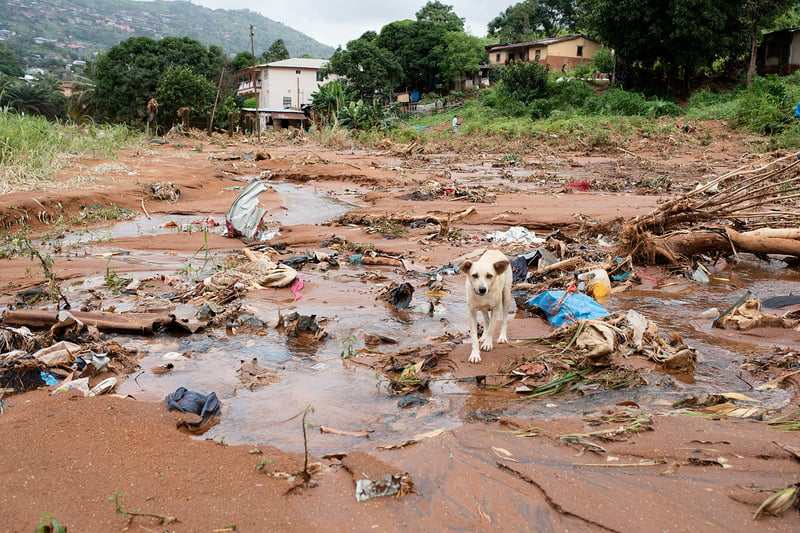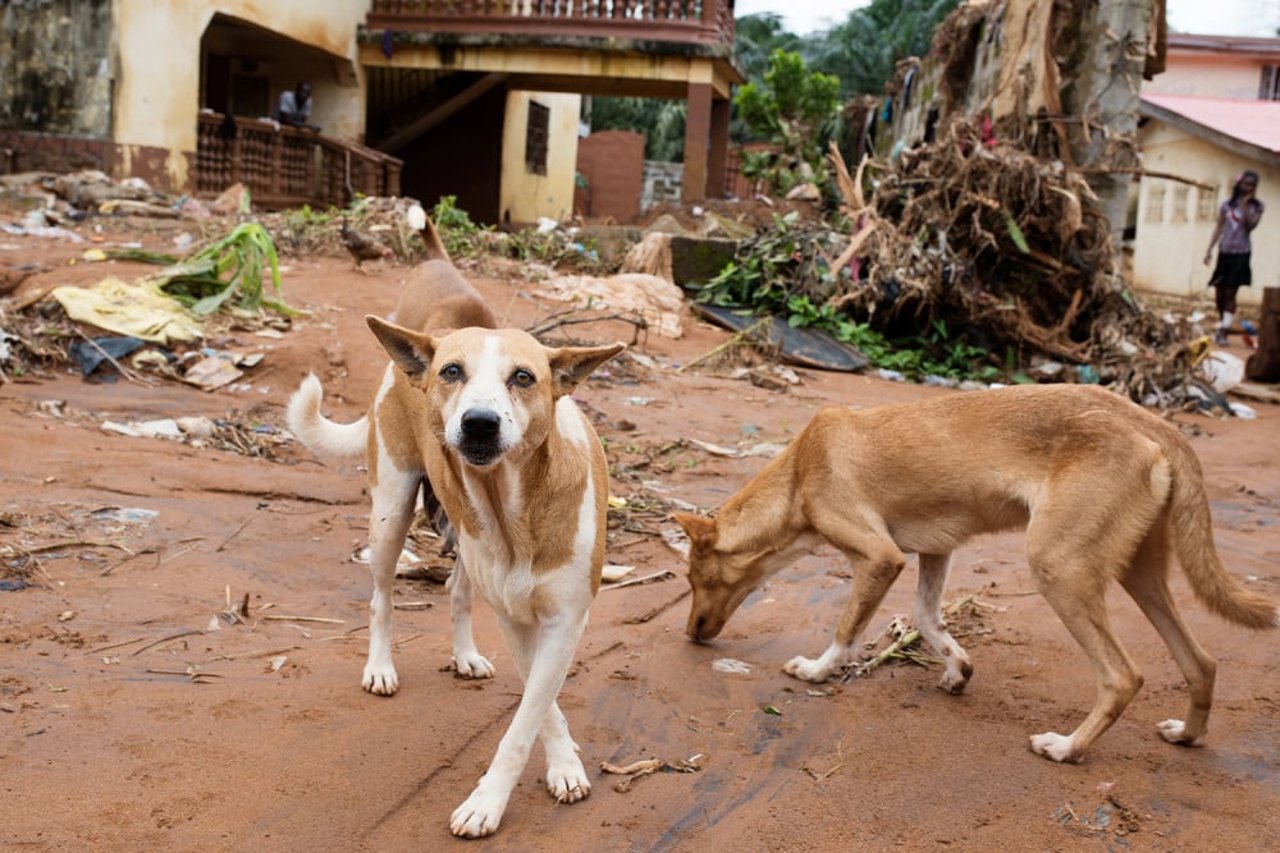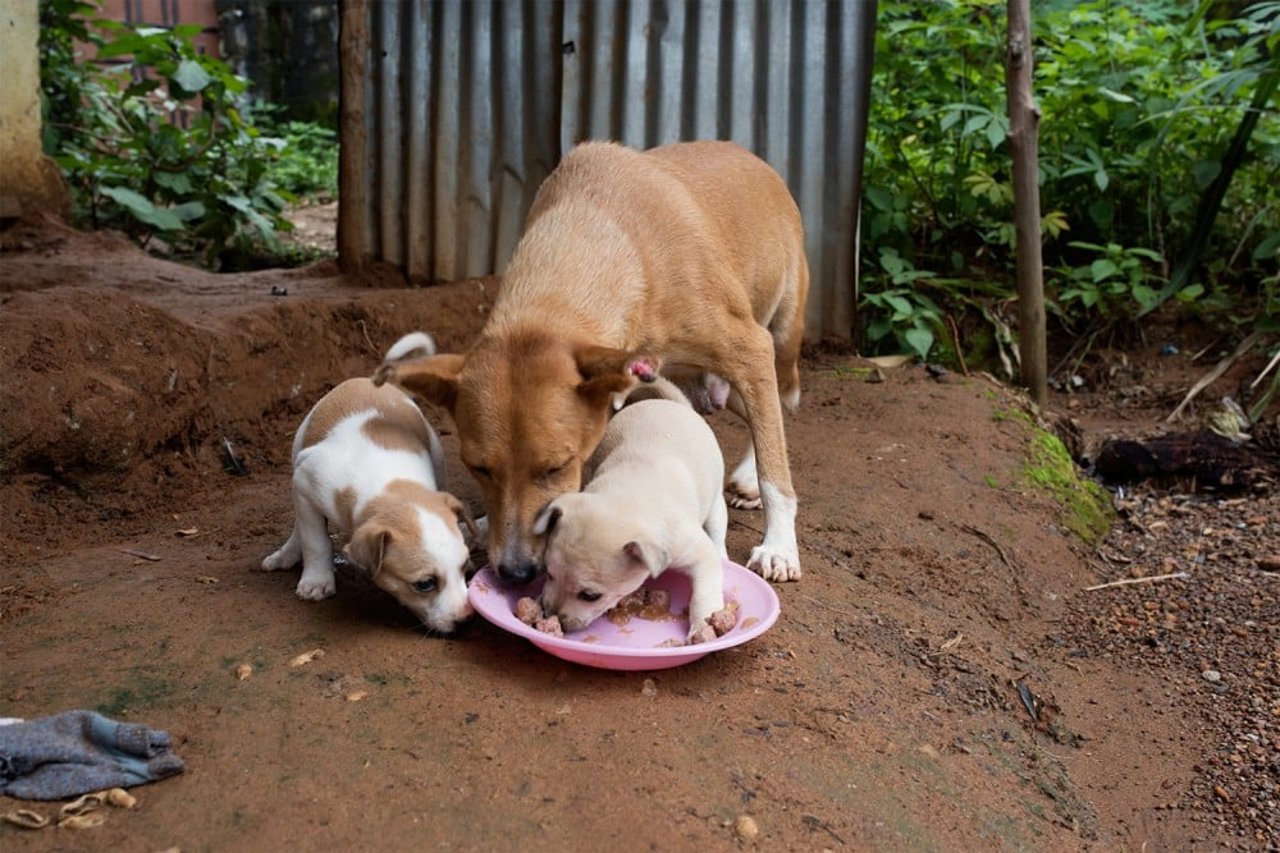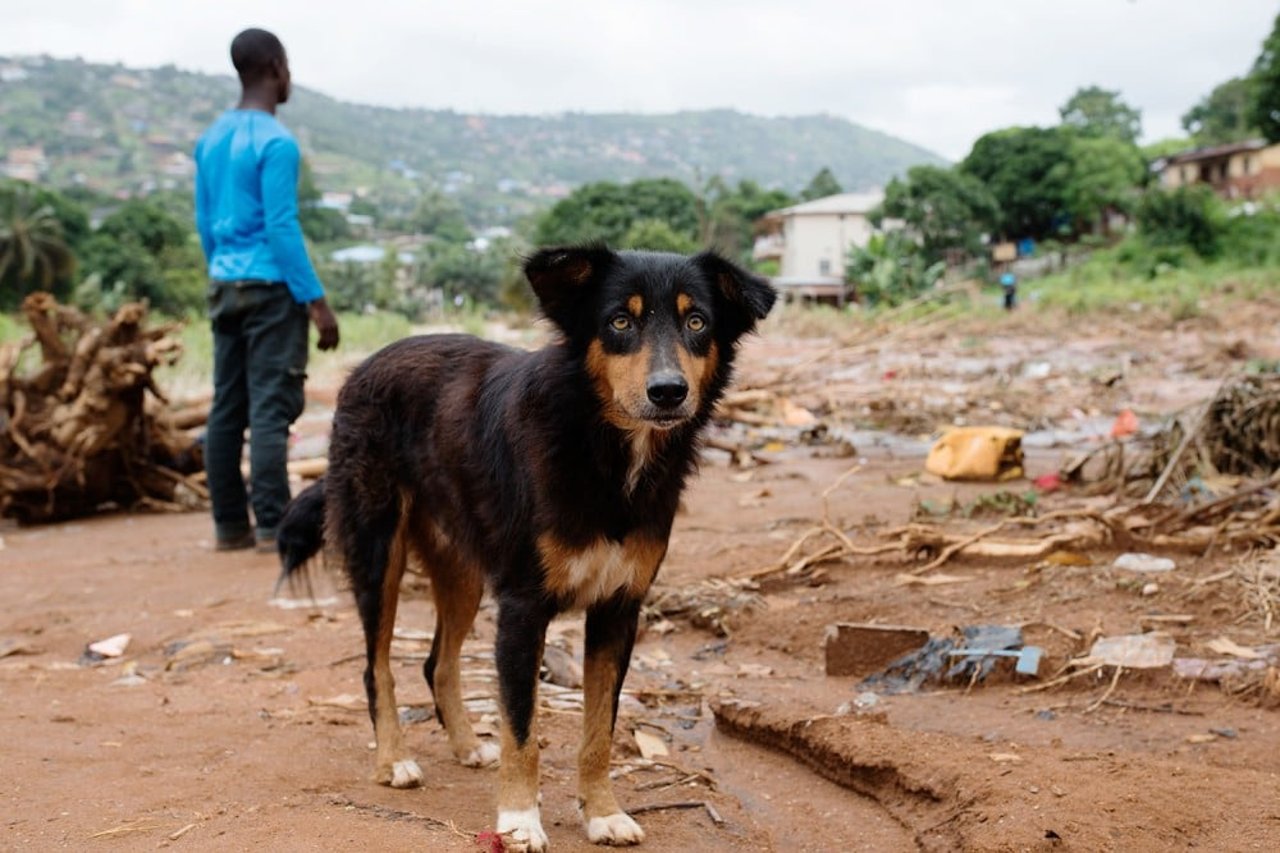
Helping suffering animals after mudslides devastate Sierra Leone's capital city
News
Our vets are on the ground, providing emergency treatment to help save thousands of stray dogs and prevent diseases from spreading
Thousands of dogs are seriously affected in Freetown, Sierra Leone, after floods and mudslides ravaged through the city, killing over 300 people and making 2,000 families homeless.
Our team is on the ground to relieve the suffering of animals by organizing and leading mobile veterinary response teams and distributing emergency vet kits.
Many of the dogs are deeply traumatised, some in shock and injured with broken limbs causing extreme pain. Veterinarians in the disaster zone are focusing on providing food and medical treatment for the animals in addition to preventing diseases, such as rabies, which is endemic in Sierra Leone. Photo: World Animal Protection/Kipp Wettstein
Many of the dogs we’re treating are deeply traumatised, some in shock and injured with broken limbs. Vets in the disaster zone are providing food and medical treatment for the animals. They’re also helping to prevent diseases such as rabies, which is endemic in Sierra Leone.
As well as caring for dogs, we’re also treating pigs and chickens who’ve been left at risk of starvation and exposure to disease. In total, we’re helping 12,700 animals, thanks to donations from our supporters.
On August 14th flooding and a devastating mudslide struck Sierra Leone's capital Freetown. World Animal Protection is working closely with the National Welfare and Rabies Control Task Force on the ground to relieve the suffering of animals. Photo: World Animal Protection/Kipp Wettstein.
As far as we know, the country has just four active vets and supplies of veterinary equipment and medicine is very limited, leaving animals in Sierra Leone vulnerable - thousands of dogs are fending for themselves on the streets of Freetown after 10 years of civil war and the Ebola crisis.
Our work is key to helping these animals and the people around them recover from this disaster.
“Before this disaster the stray dog situation was already at breaking point. The terrible mudslides over the last week have turned the situation from bad to worse,” said Tennyson Williams, our Africa Director.
“These dogs are in dire need; injured, starving and at high risk of disease. We’re also very concerned that rabies could begin to spread rapidly. The National Welfare and Rabies Control Taskforce is doing everything they can to vaccinate as many dogs as possible.”
Our team of veterinarians in Freetown are:
- Providing immediate assistance to injured animals to meet their basic survival needs.
- Providing emergency vet kits which include dressings and treatment for wounded animals, and rabies vaccinations.
- Assessing the wider and longer term needs for the animals in partnership with the government.
You can support our work by making a contribution to our disaster management fund. Click here to make your gift.
Freetown, Sierra Leone after the floods and mudslides. Photo: World Animal Protection/Kipp Wettstein
“Before this disaster the stray dog situation was already at breaking point. The terrible mudslides over the last week have turned the situation from bad to worse, said Tennyson Williams, our Africa Director.


